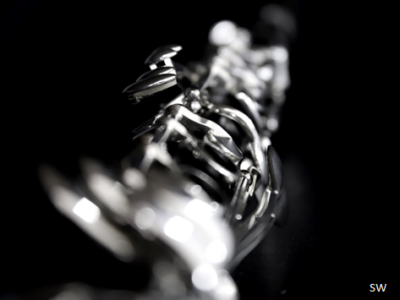‘I have come to believe that a great teacher is a great artist and that there are as few as there are other great artists. Teaching might even be the greatest of the arts since the medium is the human mind and spirit.’
John Steinbeck
But not so! Surely we need only follow the National Curriculum for music, the new model curriculum, a school’s own curriculum, the National Plan for Music, Ofsted guidance and our own scheme of work. We should remember to always start with a warm up and end with a plenary. And not forget to include all the latest methodology from whatever is currently catching the world’s attention. And not forget to get the pupils entered into all the exams going, and end up with top grades throughout. Fill up the children’s stock of knowledge. Short, medium and long term planning, ensuring a broad and balanced curriculum in an inclusive classroom. We just need to tick all these boxes – what room (or need) is there for ‘art’?
Or should we become freeform ‘enablers’ of children’s musical happenings? Technique, notation, traditions – these all get in the way of the wonderful capacity for self-expression lurking in the mind of every child. All we need do is to unleash the inner genius. No amount of methodical preparation will enable this to happen: we need to respond freely to the creative urges of a child’s spirit: this is all about intuition and empathy, and is most definitely ‘art’.
Or is it all about charisma? Should we be motivating our pupils by our wit and repartee, and by our dazzling skills as a musical virtuoso? Is our classroom manner as ebullient as a circus ringmaster? Every lesson a performance? Is turning our timetable into a series of theatrical events what we mean by ‘art’?
I’ll come clean and reveal that I am not currently a teacher. At least, it doesn’t say I’m a teacher on my job description. And I haven’t been a practising teacher for a long time. Yet I am, in my soul, a teacher. If you cut me in half it would say ‘teacher’ through me, like it says ‘Blackpool’ through a stick of rock. I’ve met and worked with some extraordinarily good teachers over the years. A privilege. I’ve met plenty of perfectly decent ones. And some who might be described as ‘working towards…’. All different. All with a range of skills. Some full of the enthusiasm of youth, and some filled with the wisdom of experience. Hardly ever have I met one who doesn’t care deeply about teaching as an occupation, or about their pupils as individuals. In music education, at least, nobody comes to work to deliberately do a bad job.
What do all music teachers, tutors and instructors have in common? Not background, age, life experiences – no. None of these. What they have is that they are all human beings. They share a common humanity with each other, and with their pupils. They bring many, many different skills and experiences with them into the classroom (or rehearsal space, band room, or practice room). Then comes the hard part: they have to choose what and how to teach.
OK – there are fixed point in our educational worlds. External examinations, imposed curricula, the demands of meeting Ofsted criteria etc. Navigating a route through these fixed points is the choice of the teacher. How do we prioritise? How do we cut up our content into manageable chunks? What’s our ‘style’ – are we one of those teachers who never smiles before Christmas?
We have a huge palette of resources available to us. External resources: instruments, software etc. And internal resources: knowledge, experience, judgment and skills. How do we manipulate this material? How do we play with the ideas that we have, to work most effectively and to have the greatest impact on the mind and spirit of every pupil? What creative choices are we making in presenting learning to pupils?
Music lessons are musical events (or should be). If we are really making music in our lessons, then how are we interacting through music (rather than talking about music)?
To be done well, all art requires techniques, skills and knowledge. How to play an instrument, construct a haiku, control perspective in a painting – all of these require careful thought, learning, preparation and practice. As does teaching: there are techniques which a teacher really can’t do without. It isn’t possible to play music to a high level without mastery of technique, and it isn’t possible to teach to the highest level without mastery of classroom skills, knowledge of subject and curriculum, and thorough preparation. These are all essential. They enable teaching to take flight. And if teaching is exciting, inspiring and wonderful, so will be the learning.
A definition to finish with: this is from Merriam-Webster’s Dictionary.
‘Art: something that is created with imagination and skill and that is beautiful or that expresses important ideas or feelings’
If I come across a music lesson that fits these criteria, that would be a pretty good lesson.
Stephen Wild
May 2019


